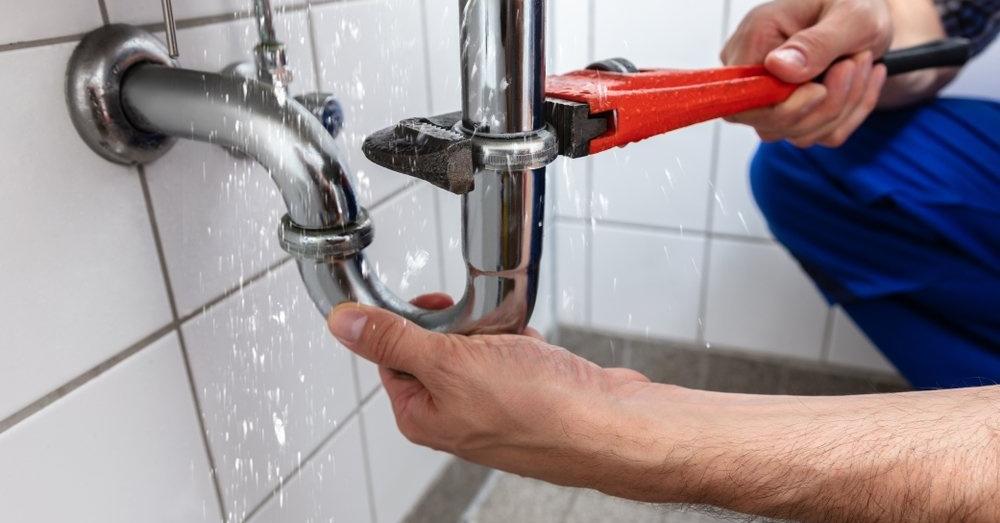Your plumbing system works hard to keep your home safe, clean and comfortable. It’s easy to take it for granted until something goes wrong.
Fortunately, many plumbing issues are inexpensive and easy to fix with the help of a professional plumber. Keeping up with basic maintenance can prevent more serious problems in the future.
Clogged Drains
Throughout your home, drain lines carry wastewater away from sinks, bathtubs, showers and other fixtures. They all lead to the main sewer line, which sends waste to your septic or sewer system. If this line gets clogged, it can prevent the drains in your entire house from working properly. Sites like https://www.fixitrightplumbing.com.au/plumber-geelong/blocked-drains-geelong/ can provide you with the right direction for help with clogged drains.
Soap residue can stick to the interior of pipes, and it often combines with hair and other debris to create major clogs. Food scraps like coffee grounds, tea leaves and eggshells can also wreak havoc on your pipes, especially if you don’t have a garbage disposal.
Many do-it-yourself drain cleaners are available, from baking soda to vinegar and everything in between. However, these DIY solutions can actually make a clog worse. If you’re experiencing a slow-draining sink or strange smells, call a plumber for professional help. Also beware of attempting to use an over-the-counter crank snake if you don’t know how to properly operate it. This can cause more damage to your pipes and may leave you with an even bigger mess than before.
Broken Pipes
A pipe break is never a welcome sight for homeowners, and it can happen for a number of reasons. Minimal or no maintenance on pipes can lead to damage and cracks, tree roots can infiltrate water and sewer lines, and extreme weather conditions can cause a pipe to expand and break.
Fortunately, there are a few things you can do before calling a plumber to help mitigate the effects of a broken pipe. Turn off the water main, shut off any electrical appliances in the area (if possible), and try to identify where the problem is. Stains on the walls often indicate a burst or leaky pipe, and can be easily located with the right tools.
Another sign is a sudden increase in your water bill. This is because a burst pipe can waste a large amount of water, leading to a higher bill. Other signs include discolored water, which indicates a problem with your pipes, and low water pressure.
Leaky Faucets
A steady drip-drip-drip of a leaky faucet can be annoying and frustrating. But it’s also
an indication that you may have a more serious plumbing problem. The constant flow of water through damaged pipes could cause the erosion of soil around the pipe, causing it to burst and break.
The first step to fixing any leaky faucet is to shut off the water supply. Look for the fixture shut off valves underneath your sink and turn them clockwise to stop water flow. You can also shut off the main water supply to your entire home if you’re replacing more than one faucet at a time.
Next, you should remove the handles from your faucet to expose the stem and the stem nut (which holds the stem in place). Once the water is off, you can replace the washer and O-ring to eliminate the leak. For cartridge, ceramic-disk, and ball faucets, you can remove the neoprene seals and clean away any debris that has built up to return them to good condition.
Strange Odors
Plumbing smells are never pleasant, but if they persist it could be an indicator that something is wrong with your plumbing. Odors from the drains can be caused by food, hair, grease and various other things that get pushed down the pipes. These materials encourage bacterial growth that decomposes them, which releases stinky gases.
You can prevent odors by watching what you put down your drains, especially preventing kids from flushing toys and other items down the toilet. Grease and oil should also be washed away rather than poured down the drains.
The drains under your sink should be covered by a trap that keeps water and smells from coming back up. If the water in this trap evaporates, you may start to notice a rotten egg smell. If the odor is strong and coming from multiple drains in your home, this could be a sign of a sewer line problem. A plumber will be able to inspect the drains and pipes for problems.
